Proem For All Post-Dark Age Civilizations
Assessing the Hard Limits & Boundaries of Any Future, Post-Industrial Societies
Two weeks ago, I published the essay The Dawn of a New Civilization which proclaimed the birth of an Aenean man standing in the liminal space between doom and destiny. The piece inspired a number of readers with its heroic spirit. It also inspired a number of stern responses from pessimistic readers, who challenged the very possibility of an Aenean civilization following our resource-depleted Faustian state. While I attempted to “steel-man” the pessimistic case in last week’s essay The Aenean Challenge, my effort was limited by the fact that I’m not actually a population-and-resource doomer. My friend Ahnaf Ibn Qais, however, *is* such a doomer; and he kindly offered to “titanium-man” the case against Aenean civilization. Thus this guest post.
Ahnaf and I argue about these issues constantly, and in publishing his essay I do not endorse his conclusions. Rather I think that anyone who suggests mankind has the courage to go to Mars probably ought to have the courage to allow their views to be challenged by someone who vehemently disagrees. Without further ado…
Pater Tree of Woe has asked Your Friendly, Neighbourhood DOOM Merchant to Smelt something DOOM-ful to ‘make up for’ the little hope, optimism, & yearning he eloquently generated with his Epic Shrub of Joy Essay Duo on the Aenean Future. 😉 Trigger Warning: Exceptionally bleak, gloomy & despairing material follows… Anyhow, You have been warned, Dear Readers & Listeners! 😘
Nobody Will Be Going To the Stars
Energy, Demography & Technology.
These three form a triadic relationship, which binds them to one another.
Any change in two will mean a corresponding movement in the third.
For instance, should Primary Energy per capita in a society decrease, coupled with Demographic Transition & Decline, Technological Stagnation will likewise follow.
This is precisely what we see across the Western world's sundry ‘developed’ & Industrial Societies, namely Europe, the US, Oceania, Japan & South Korea.
Firstly, let us begin by looking at Demography & Demographic Decline:
Often, people focus on TFRs (i.e. Total Fertility Rates) & miss the bigger picture…
Namely, as the shape of the population Pyramid shifts, Crude Births get overwhelmed by Crude Deaths, with the top of the pyramid rapidly filling up with seniors & the elderly, thereby increasing the Dependency ratio of the overall society:
Societies with higher Dependency ratios (i.e. in Stages 4,5 & 5+ of Demographic Transition) come across a plethora of issues, which soon prove intractable:
Taxes, welfare, & whatnot are hiked up to compensate for society's rapid Aging, as the Median Age rapidly spikes from Low Fertility coupled with higher life expectancy. The shrinking, aging workforce is overburdened, & Govts resort to Mass Migration:
Automation, Robots, & AI ultimately lack the economic & energy margins or the overall fungibility to replace most muscular, highly labour-intensive work. While some automation occurs, this is not enough in the grand scheme.
‘The Robots & AI’ are ultimately endogenous variables in the system, subject to trade-offs (economic, ecological, energy, etc.) & other related concerns.
In many fields of human activity (such as Agriculture), the limits on automation were reached decades ago, with nations like the United States registering a stagnant to declining trendline for Horsepower per unit of agricultural land for several decades:
Sir Bullfrog Patriarch said it far better than Yours Truly ever could! 😉
SOURCE: https://x.com/SouthPatriarch/status/1859959606610665963
This is all to say that ‘The Robots’ will not be coming to save the day.
Given said limitations & optimizations, automation will be around ‘for a while’ in a society until said society is too mired in debt, suffers from shortages in *insert raw materials here* due to Geo-Economic variables, or suffers similar related setbacks.
In the meantime, the lion’s share of labour-intensive, cheap, ‘for pennies & outright free’ slave-toiling… will be done via Migrants who come in legally & illegally.
This, then, is the fundamental nature of the Demographic predicament.
It is not just that Industrial Society, by its nature of pursuing ‘Growth Ubër Alles,’ gives rise to legions of childless men & women & loads of elderly…; it also births Modern-Day Slavery to keep the Fake & Ghey economy juiced up & running.
The societies, now rife with Ethnic tension & conflict, soon likewise find themselves mired in huge levels of debt, courtesy of caring for a growing elderly population.
In time, living conditions for working-class people (black, white, brown, etc.) will deteriorate, & mass emigration waves will leave for greener pastures. Thus, the elderly will no longer find sufficient help & perish in a slow, grinding fashion.
With all that said regarding the trendlines for Demography in Industrial Society…
Secondly, let us now turn to Energy Poverty & Scarcity across the Industrial world.
Here, two predicaments converge on one another in an exceedingly Brutal way:
First, electricity generation is an exceptionally wasteful activity. An additional 1.5x to 2x of starting energy inputs is necessary to account for energy losses during conversion. This means that a mere third of inputs reach the finish line.
For the United States, Europe & other Industrial societies, conspicuous consumption & the ‘Big City Lifestyle’ are a fact of life. This means increased demand & consumption of electricity for sundry uses (residential, commercial, industrial, etc.).
The United States, a veritable Energy Superpower, uses all (!) of its Nuclear & most of its Coal & Renewable source inputs to ‘soak up’ the 65% conversion inefficiencies for electricity generation, & this ratio has remained stable for over half a century.
Just like how Interest on the Debt devours over 25% of all inflows into the Treasury like an ever-expanding Black Hole, we will soon find similar phenomena in the US & other Western nations involving their energy losses from electricity conversion.
Natural Gas, the bedrock of electricity generation in most Industrial Societies, will continue to be imported en masse by the US (& others) to meet rising demand, yielding geometric increases in the Black Hole of conversion losses.
This segways neatly into our second (& perhaps more brutal) predicament:
The essential role played by Oil, Coal, & Natural Gas in the Global Economy.
Fossil fuels are fungible, concentrated & affordable. Nothing else on Earth possesses all three attributes simultaneously. Renewables are intermittent & diffuse, even though margins have improved drastically over the past several decades:
The Levelized costs of Energy (i.e., LcoEs) for Renewables have diminished considerably, given Government subsidies, innovation, economies of scale & related windfalls from ‘The Virtuous Business Cycle.’
What has not changed, however, is that large buffers & storage capacities are necessary to stock up during Downcycles, which comprise some three-quarters of the overall calendar year for conventional Solar & wind in most locations globally.
The technology for buffers of such a vast scale & scope does not exist, especially when we begin to model future increases in Energy Demand from consumptive changes & population growth. Yet, it is far worse than just this:
Dr. Simon P. Michaux, Associate Professor of Geometallurgy at the Geological Survey of Finland, has observed that any large-scale move toward Solar, Wind & other Renewables will require Metals, Minerals, etc. that Do Not Exist.
In Estimation of the quantity of metals to phase out fossil fuels in a full system replacement, compared to mineral resources (2024), penned for the Geological Survey of Finland, he notes that the Elemental & Energy requirements are too great:
Essentially, the requisite minerals & metals do not (& will not) exist.
Neither global per-annum production numbers, total global reserves (surface & on the seafloor), nor significant future Ephemeralization & boosts in productivity are sufficient for a post-fossil Fuel, High-Energy-Consumptive Economy.
Dr Simon has built multiple models in the aforementioned paper, each tweaking sundry variables (e.g., more global production per annum, more reserves found on the surface & seafloor, Ephemeralization, & productivity boosts), all to no avail…
Thus, man's Energy future is tied to Fossil Fuels, meaning their life cycles will mirror the fate of Modern man & his Abundance Industrialism.
So, the future will be Scarcity Industrialism, in which no surplus metals, minerals, materials & energy will exist for any ‘Interstellar Migration.’
‘Tomorrowland’ is gone & will not be coming back.
As Grandmaster of DOOM
John Michael Greer
put it succinctly:
‘Here We Are…!’
Tech & Innovation Won’t Change This
“Someone, Somewhere Will Fix This!”
Yours Truly can hear said Cry from thousands of miles away at this very moment.
Dear Readers & Listeners… the issue is not something being ‘fixed. ' It comes down to Scale, Scope, Resilience, Timely Implementation, &, finally, Sustainability.
Solar & Wind (as noted earlier) require gigantic buffers, which cannot be built &/or maintained courtesy of Hard Limits on Earth’s Geology. For instance, more willpower from the Faustian Man will not magically increase the Copper supply.
All other Renewables (Geothermal, Hydro, Tidal, Biowaste, etc.) lack the relevant Scale & scope to matter for this analysis. Namely, given their fringe &/or localized natures, they cannot be deployed on time, given our sundry predicaments.
Geothermal, Tidal & Biowaste… each have very specialized components, for which Global Value Chains do not have the requisites (i.e., transport, materials, engineering acumen, etc.) for mass deployment at Scale. They are… ‘Too Fringe.’
Hydro, meanwhile, is localized to the kinetics of a local area’s Hydrology & cannot be mass deployed due to this limitation. Buffering Hydro for future use at a later date & location… runs into the same intrinsic issues that plague Solar & wind.
Biofuels require intruding on the food supplies of whole nations & suffer from many of the Natural Limitations noted thus far (i.e., buffers, localization, ‘fringe-ness,’ etc.). They, too, will never amount to much, save for some small-scale applications.
If we exclude all these options & likewise Fossil Fuels (i.e., Oil, Coal & Natural Gas), in tandem with Traditional Biomass, courtesy of their Plateaus & Peaks either being imminent or happening right now… all that is left is Nuclear Energy.
It is here that the Technophiles, Cornucopians & sundry Optimists now rejoice.
After all, we were told (for decades, post-WW II) that this would be ‘Man’s Ticket to the Stars, the Fuel for his Voyage into the Unknown, into the Vast Starry Sky!’
Yeah… about that:
Conventional Nuclear suffers from a fatal setback, which has resulted in its decades-long Stagnation & Plateau from the late 1990s to the present day:
Uranium needs to be acquired at cheap prices for good margins. Given the complex value chains of Nuclear Energy, coupled with the sophisticated talent pool required to run things, Nuclear cannot compete with cheaper competitors.
This is why France, forever the poster child for a ‘successful Nuclear program,’ has had to loot & pillage the Sahel for decades to Steal vast swathes of its vast Uranium reserves for pennies. This, however, will no longer be possible in the future:
After the humiliating exit of French & allied forces from the Sahel, it has become increasingly clear that the Geo-Economic calculus in the region has forever shifted. Russian mercenaries & Chinese engineers will now flock to the Sahel, not Westerners.
Given the disproportionate production of Uranium in the Eurasian sphere, coupled with unfavourable LcoEs for conventional Nuclear, this pathway is a Dead End:
Westerners will not have access to cheap, reliable sources of Uranium for several decades as the Geo-Economic bifurcation between the East & West solidifies.
No military &/or kinetic ability exists to do so, & the lion’s share of the Eurasian sphere nations are uninterested in trading with Westerners, who are swiftly becoming enemies to multiple Civilization States (& their allies) simultaneously.
Meanwhile, government subsidies, ‘cutting red tape,’ etc., will do little since (1) Most Western governments are heavily indebted & (2) What little production exists today has already maximized most of its economic efficiencies, & won’t increase much, thus.
So much for that… well, what about non-conventional forms of Nuclear Energy?
At this point, the Cornucopian, Technophile Space bros take out their final straw… the one that will (somehow, someway) save them from drowning…
& that is Thorium Molten Salt Reactors (MSRs) for Nuclear Fission:
Thorium MSRs are very impressive (given their low energy cost footprints & relative lack of Nuclear Waste). They also show great promise in current small-scale testing, promising to improve the reuse & recyclability of key minerals & metals.
Like conventional Nuclear, the value chain complexity & talent pool requirements still apply, but the lower footprint lessens these troubles.
The liquid fuel aspect (as Dr. Simon notes) also means all the elements involved can partake in the reaction simultaneously, speeding up everything considerably.
So… as far as ‘last straws’ go from a drowning man, this is all quite impressive.
However, being a DOOM Merchant who is diligent in his craft, Yours Truly will have to echo the words of Ivan Drago here & go… ‘I Must Break You!’ 😉
Thorium MSRs, while an impressive component of a future ‘Purple Transition,’ will still require careful planning & frugal management of various materials & energy.
SOURCE: Dr. Simon P. Michaux, Geological Survey of Finland, Estimation of the quantity of metals to phase out fossil fuels in a full system replacement, compared to mineral resources (2024)
The widespread adoption of Thorium MSRs will not salvage Existing Industrial Capacity, whose Energy is rapidly diminishing across the Western world. It has neither the yield, scalability, or scope to accomplish this.
To understand why, some brainstorming about conventional Nuclear is warranted:
Today, there are about 440 conventional Nuclear Plants, churning out 6,800 to 7,000 TWh of Energy per annum… of which 2,600 to 2,800 TWh comprises Electricity per annum. This number increases by a net of 1-2 additional plants annually.
The Global Electricity component from Nuclear presently hovers around 8-10%. For the Global Primary Energy mix, it presently hovers around 3-5%.
When running the numbers for transitions involving Nuclear, Dr. Simon ran multiple scenarios that involved tweaking the Nuclear component in the Energy split.
Scenarios Delta, Epsilon & Zeta analyzed the extra per annum capacities required… as well as the total new annual installed capacities required… & they did so for the Nuclear component in the mix getting bumped up to 10%, 20% & 30%, respectively:
SOURCE: Dr. Simon P. Michaux, Geological Survey of Finland, Estimation of the quantity of metals to phase out fossil fuels in a full system replacement, compared to mineral resources (2024)
SOURCE: Dr. Simon P. Michaux, Geological Survey of Finland, Estimation of the quantity of metals to phase out fossil fuels in a full system replacement, compared to mineral resources (2024)
SOURCE: Dr. Simon P. Michaux, Geological Survey of Finland, Estimation of the quantity of metals to phase out fossil fuels in a full system replacement, compared to mineral resources (2024)
While the required Total new annual install capacity has been reduced significantly, the extra annual capacity required to phase out Fossil Fuels remains gargantuan.
Reducing the former from the high of 28,669 GigaWatts (in Scenario Delta) to a low of 23,767 GigaWatts (in Scenario Zeta) is a welcome decrease. Yet, given practical ‘on the ground’ realities worldwide, it remains an unassailable per annum target.
Thorium MSRs, should they be commercialized & deployed en masse in the coming years & decades… will have outputs in the range of 500-1,000 MegaWatts per plant, or maybe even higher… but that will be moot, given the ridiculously high phase-out costs.
Ultimately, the problem is not One Specific Silver Bullet & its ability (or lack thereof) to resolve matters. Rather, the predicament is that given current Consumption patterns, Demographics, & Energy Infrastructure… the requirements are too great…
Our Existing Industrial Capacity will not be maintained…
& So, A Simplification is Due.
Thus, Man Will Die Down Here On Earth
Earthbound Stagnancy & Equilibrium.
That is the Far future for all our descendants, millennia & centuries down the line.
Beyond the era of Scarcity Industrialism that we find ourselves in, coupled with sundry bottlenecks & limits to freshwater, arable land, etc., the societies of The New Dark Age (spanning several centuries & millennia), will have to Improvise:
Many will default to a Feudal &/or Neo-feudal patchwork of governance, where decentralization (of land, labour & capital) will once more become the norm. Others will resort to Scavenging lifestyles. Still others will become Nomadic Warbands.
The cheap, abundant, & fungible energy resources (i.e., Fossil Fuels) currently being burned at breakneck speed across the Industrial World will mean that future generations will not have access to said resources, save for some small pockets.
For metals & minerals, the situation is even more straightforward since the Recycling & Reusability rates for many of them are a mere few percentage points; thus, they are essentially ‘one-time-usables’ that our descendants won’t see, save for small traces:
SOURCE: Dr. Simon P. Michaux, Geological Survey of Finland, Estimation of the quantity of metals to phase out fossil fuels in a full system replacement, compared to mineral resources (2024)
Technology, Innovation & related human feats & marvels are about to hit a Brutal bottleneck from which they will never recover… namely, the full-on, outright Outage of materials & energy for which no suitable substitutes at scale & scope exist.
To this mix, we must now circle back & add in the brutal predicament of Demography:
In the coming years & decades, we will see the rapid Aging of large segments of the Industrial World. This will mean that by the mid-to-late 21st century, outright labour shortages (skilled, semi-skilled & not-so-skilled) will mar these societies.
The Demographic Transition, kickstarted by the sundry technological, social & economic breakthroughs of the Industrial Revolution (from roughly the mid-18th to early 19th centuries & beyond), will peter out during this time in a predictable fashion:
Death rates across the Industrial World will outright continue to overwhelm Birth Rates. For many of these societies, this will be the first time in their history that such a thing has happened during peacetime, & sans any natural disasters & calamities.
This will be devastating since Depopulation will occur in these societies (via mass emigration waves, euthanasia, etc.) while their trendlines look like this:
While this nearly five-century data set (!) concerns Crude births & deaths in England & Wales, it is a microcosm of Faustian Man’s destination.
Further Demographic Transition using these trendlines will mean that Stages 5+ will be top-heavy & filled with millions of grandmas & grandpas in their 70s & beyond, many of whom will be neither willing, ready or able to partake in intensive activity:
Be it labour, innovation, or even Dreaming the sorts of dreams Faustian Man is engrossed in today (i.e., Fusion Power, Artificial Intelligence & Interstellar Migration), all of these will soon be chucked into the proverbial dustbin of history…
… for there will be *nobody left outright* of youthful disposition to dream, toil & innovate for these things, nor will any of the requisite materials & energy to do so, since the majority will have been used up or tossed in a landfill somewhere.
As the nations of Europe & the Western world, writ large, continue facing mass shortages of Factories & Manpower courtesy of this Mass Sterilization, The Abundant Surplus Energy & Metals presently around them… will soon go away:
SOURCE: Dr. Simon P. Michaux, Geological Survey of Finland, Estimation of the quantity of metals to phase out fossil fuels in a full system replacement, compared to mineral resources (2024)
Future societies of the Deindustrial Dark Age will thus viciously ration energy, metals, & minerals, the same way many individuals & households save & manage their money & related assets. The same will hold for all post-Dark Age Civilizations.
Industrial Society, the pinnacle of Faustian Man, the Eighth Spenglerian High Culture, helped him build the first-ever Globespanning Civilization—at least, the first one we know of, given recorded Human History to the present day.
It won’t be the last, & it will not be remembered fondly by our descendants.
Rather, many of its practices, obsessions, dreams & quirks will be viewed as grotesque & demonic, wasteful & spendthrift, cruel & capricious. That will be its legacy:
For it will have told these Future Civilizations about a once-in-a-lifetime period of planetary surplus & excess in demography, energy, & materials… only for it all to have been squandered on sundry trivialities without concern for its descendants.
For future generations, the focus will be on Ameliorating the worst excesses of centuries & millennia of Decline & Fall as Negative Sum Economics takes hold.
They will no doubt gaze up towards the Heavens & the Starry Sky.
& they will no doubt likewise yearn for the cosmos in some manner.
But they will be forever Earthbound, seeking to make do with what they have left.
The Ninth Human Civilization will be Scavenged by the man of Mizaan, who seeks equilibrium with the world around him.
He will not dream Big Dreams or indulge in Romantic Fantasies about a world that can never come to be. Pragmatism will be his Forté.
He will preside over a Declining, Fallen World, one which the Eighth Civilization, built by Faustian Man, will have thoroughly eviscerated via resource & energy overshoot, ecological malpractices & related illths. That is what he will inherit.
He will likewise not be interested in any excesses of the Eighth Civilization.
If, as Spengler theorized, High Cultures that succeed one another (e.g., the Magian vs the Faustian) do so out of a fierce antagonism… then this will be how things unfold.
The Mizaanian Man, & the Ecotechnic, Retrotopian society he will build several centuries & millennia after The New Dark Age… will completely repudiate the central Faustian ethos & metaphor: ‘an eternal outward surge into an emptiness without limit.’
The Garden City exemplifies ‘A Fullness within Bounds, to where the Soul Returns.’
That will be the Ur-symbol of the Mizaanian Man & the Civilization he pursues. Ecological Stewardship, Spiritual Contentment, & Satisfaction will be its calling.
Built by Eurabian Man & Eurabia (as I have theorized in my writings), it will be the first in a long line of successors to the Faustian West & Industrial Society.
It will be the first clumsy expression of mankind's search for Ecosophian Intimacy with the Biosphere & its sundry life-giving, Equifinal web of ecological constraints.
Hence, Faustian Man, who had turned the ‘8’ sideways to form ‘∞’ & pursue infinitude in all things… would, at last, be supplanted by Eurabian Man:
For he, the man of Mizaan, will seek resilience, harmony & stewardship over said systems, & he will have to thank Faustian Man for his sundry excesses & missteps, which will soon give him the whole world on a silver platter… 😉
Till then, remember, Dear Listeners & Readers… 😘



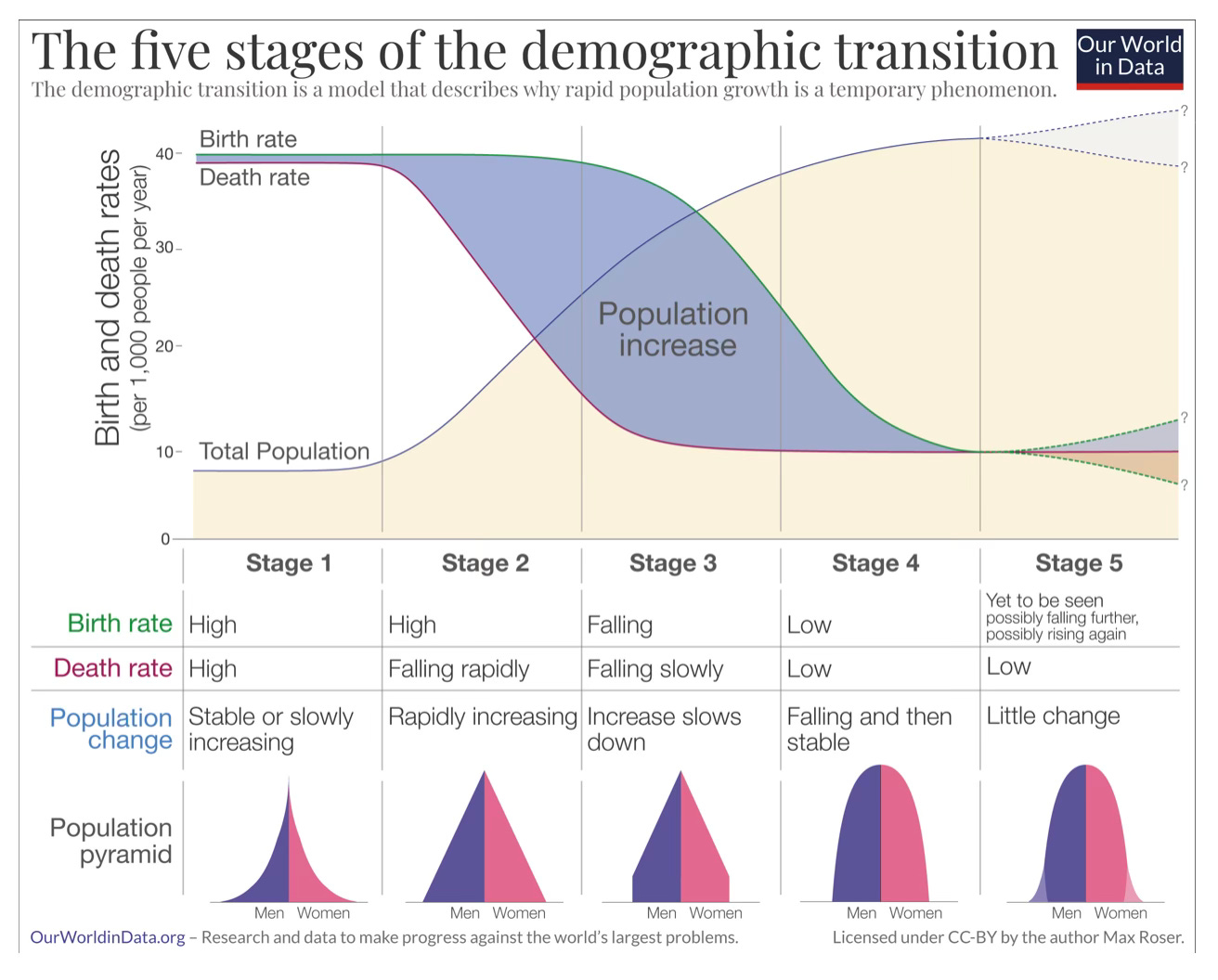
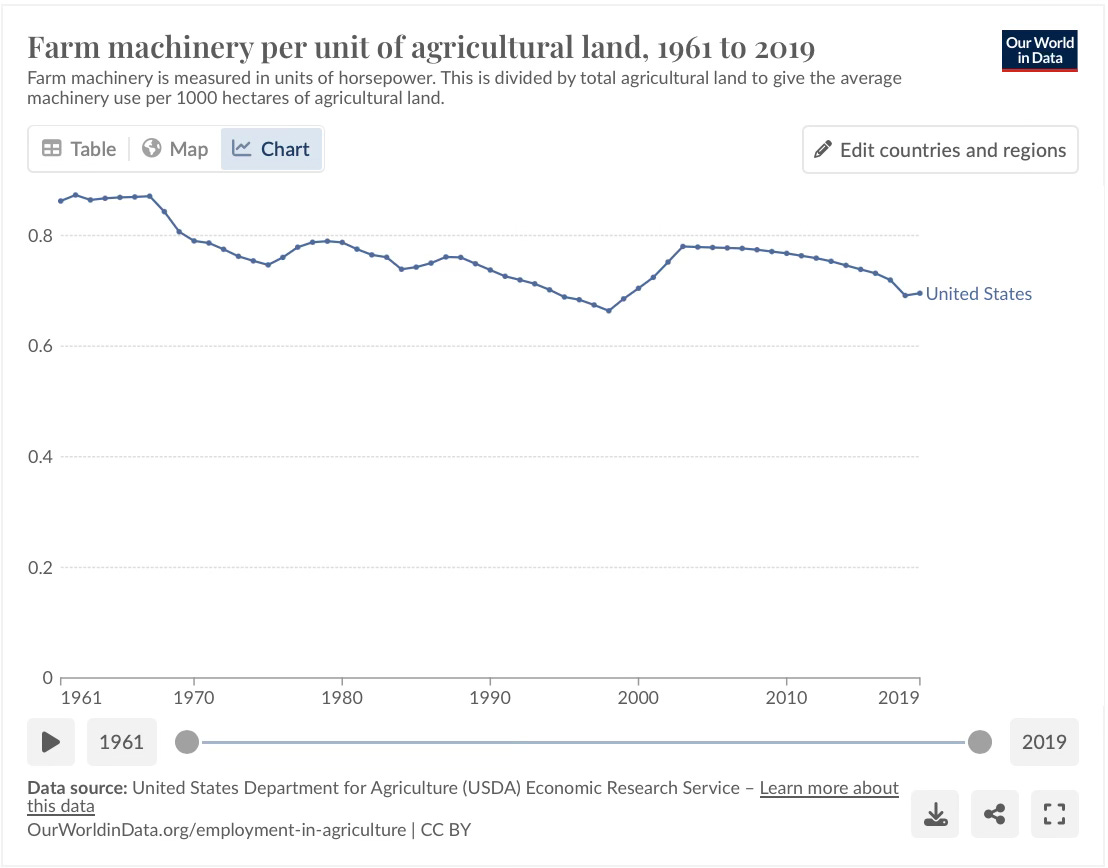

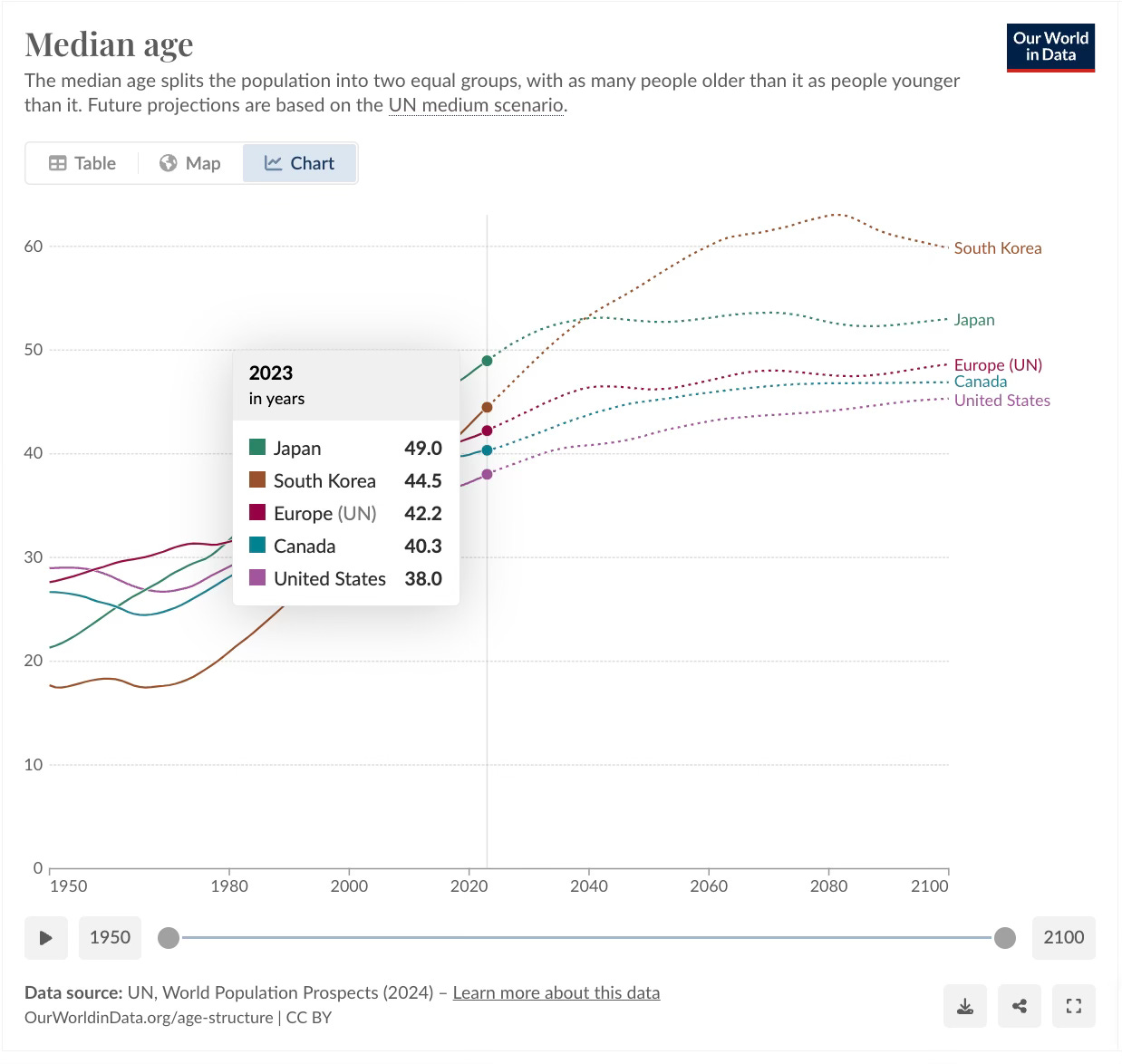
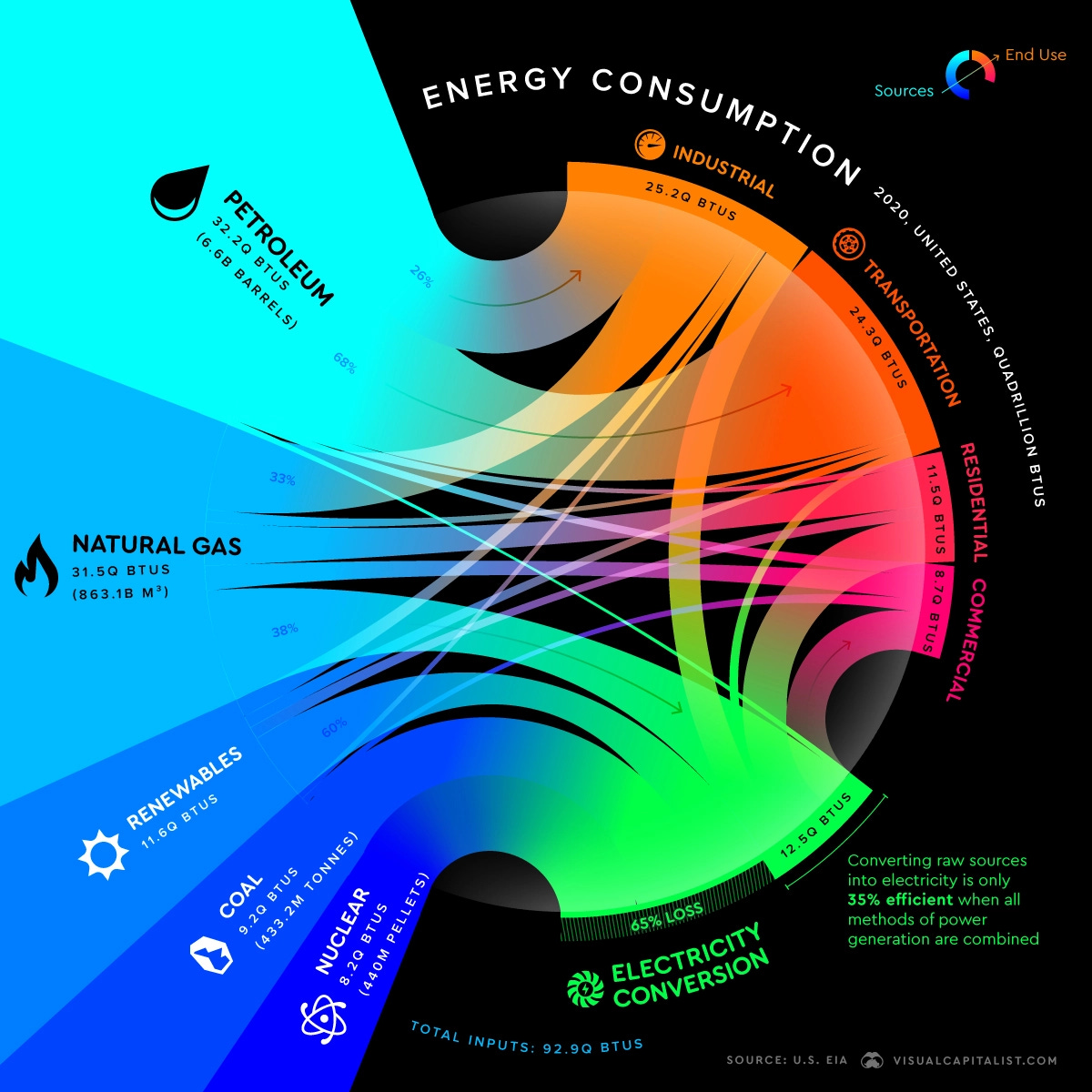
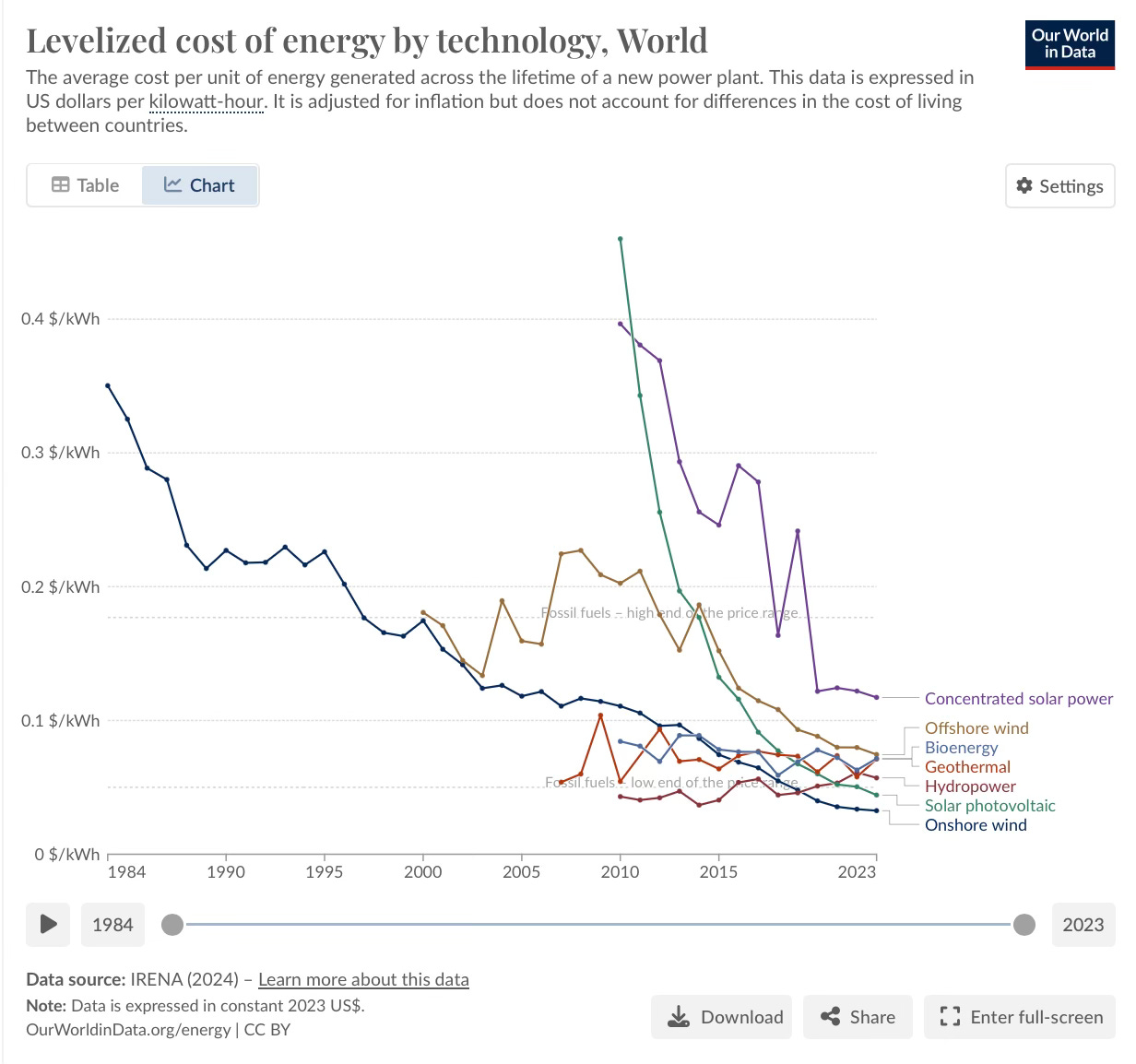

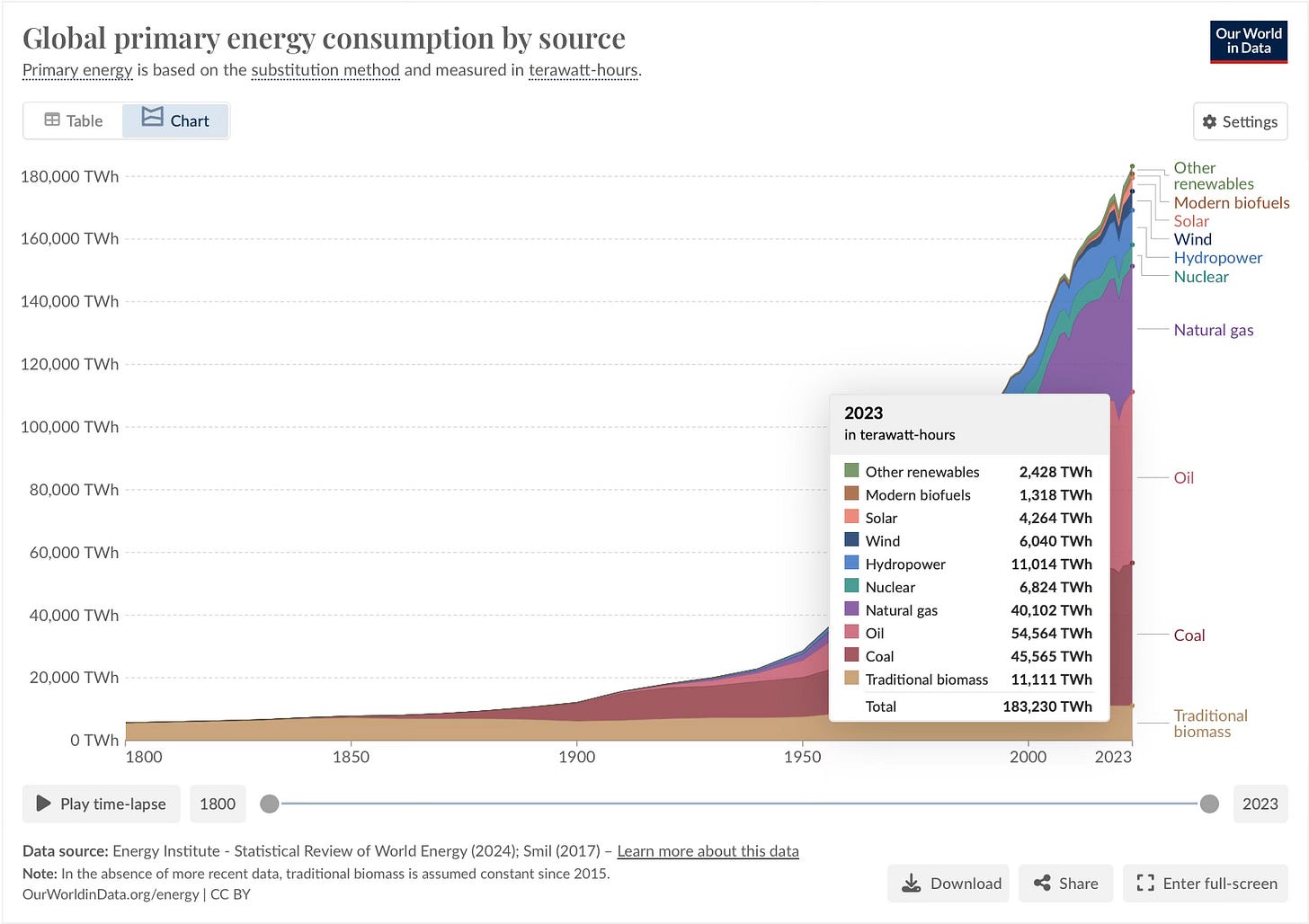
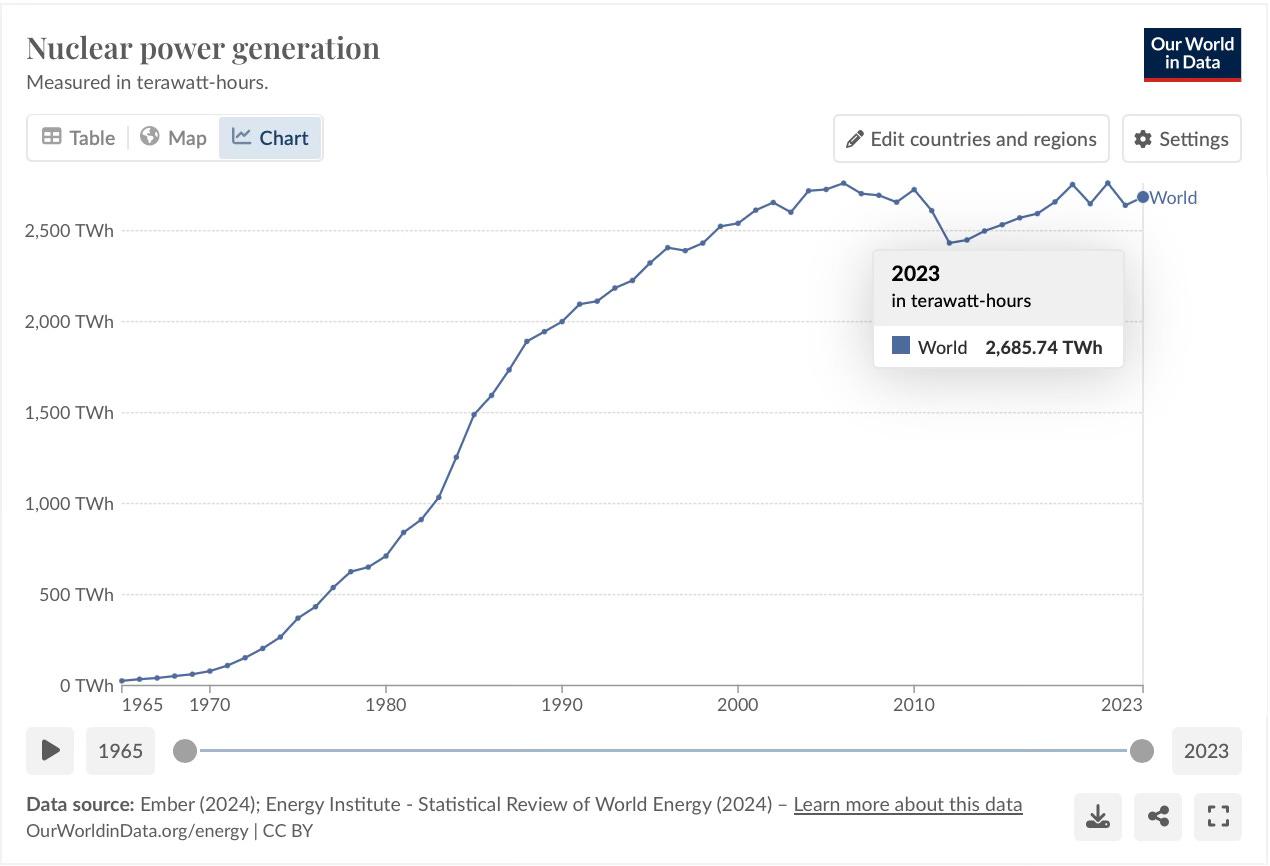

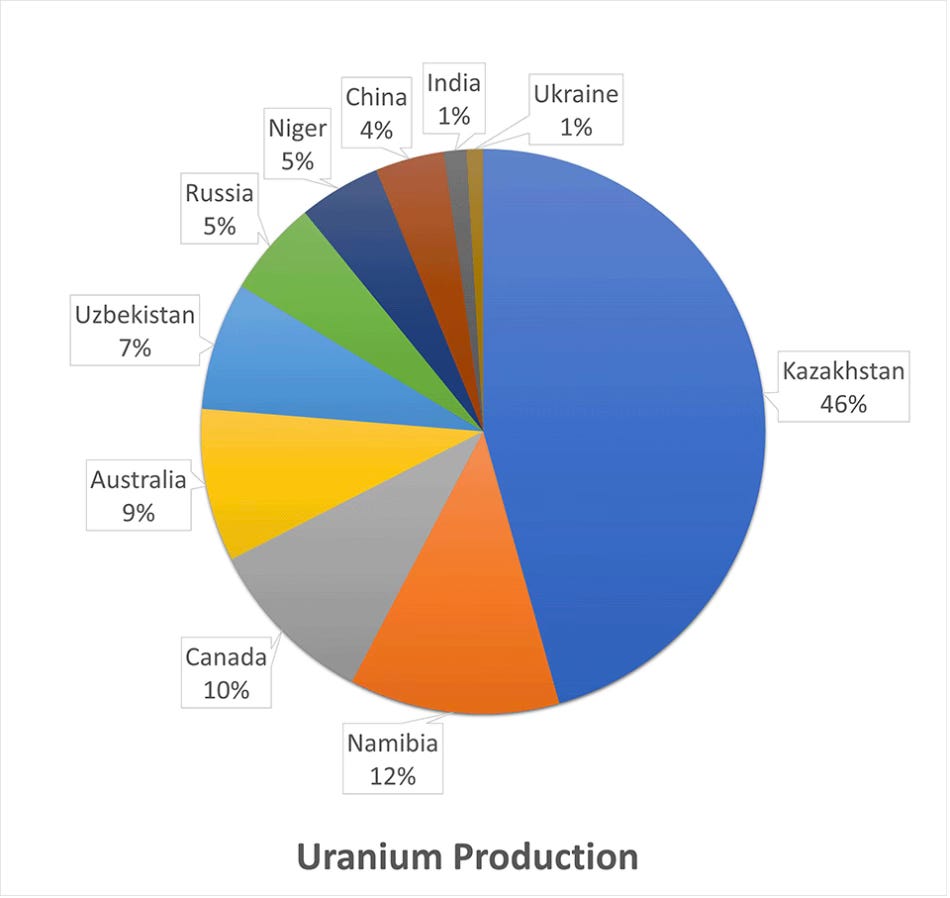
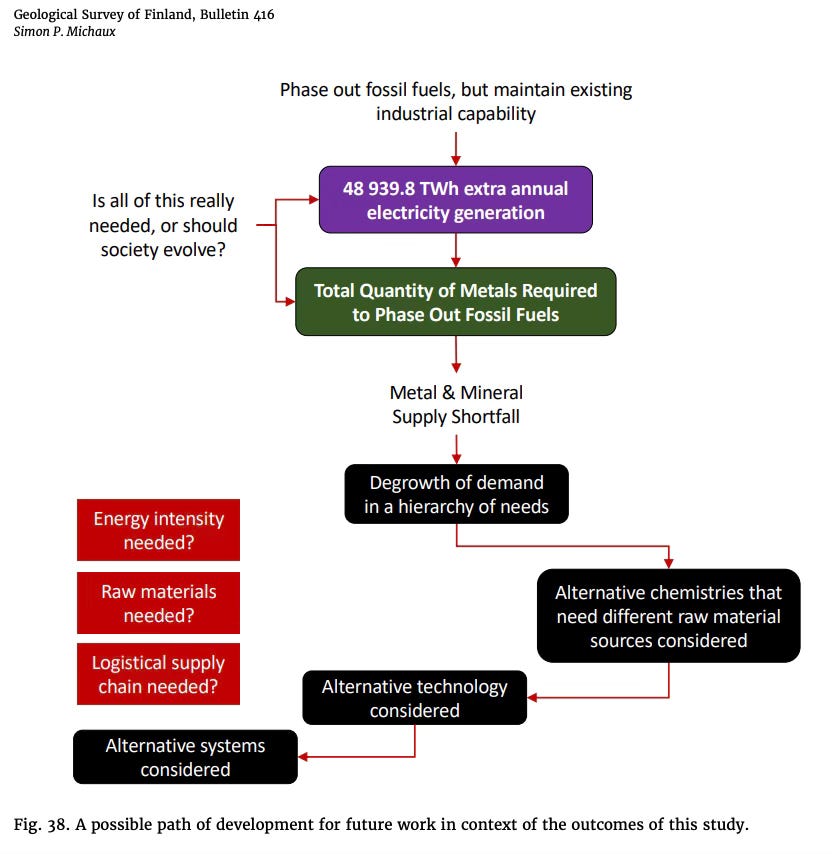
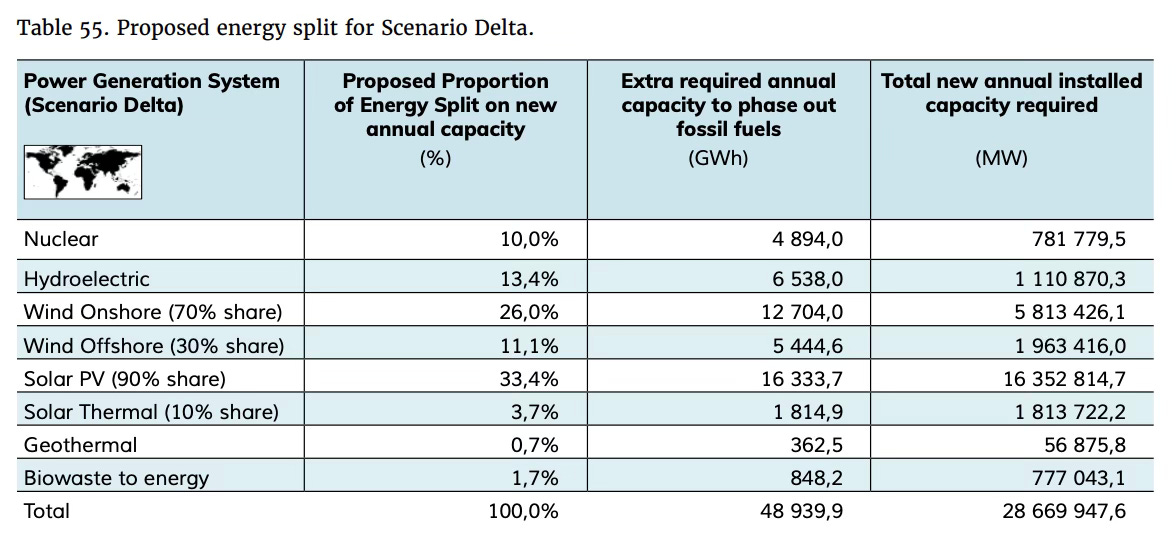
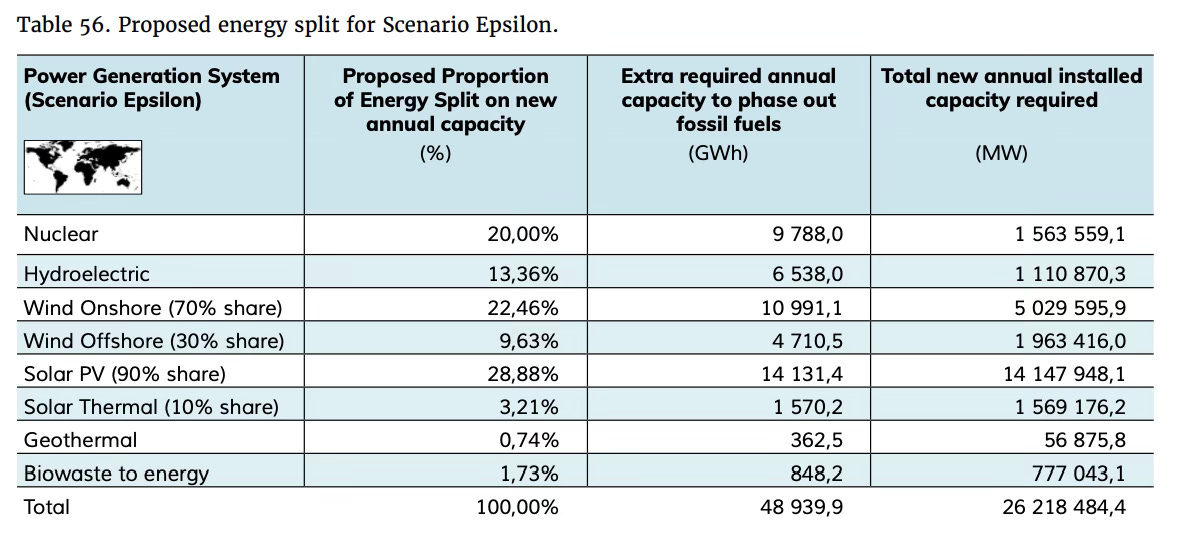
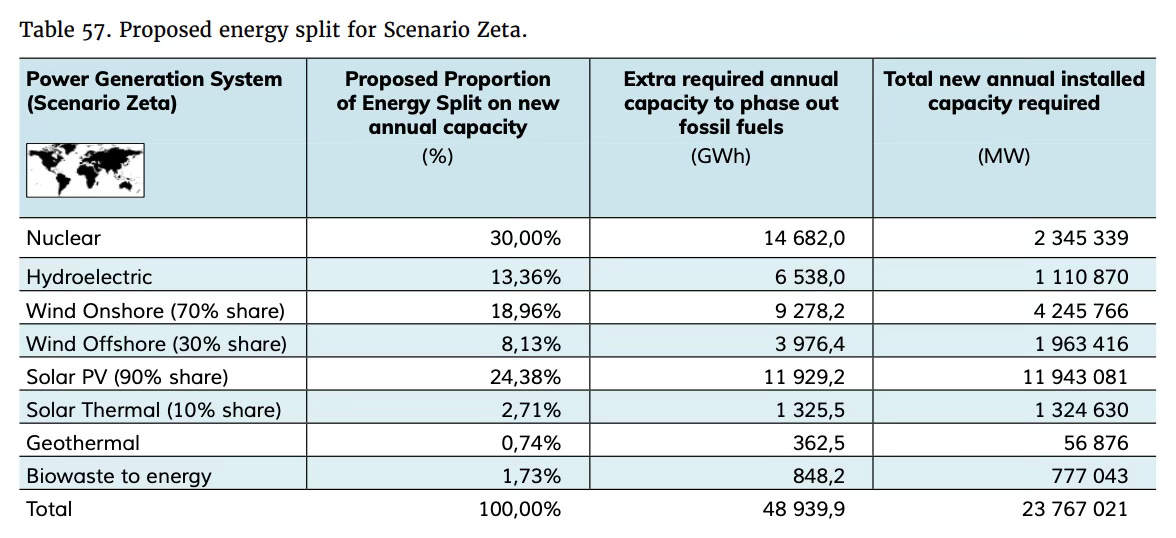

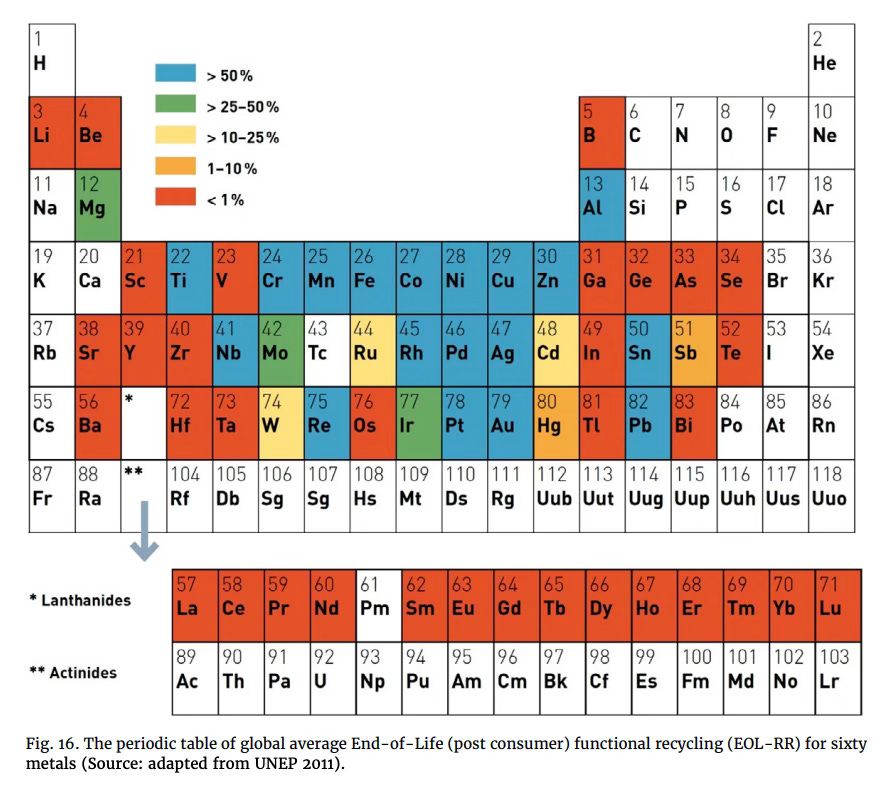
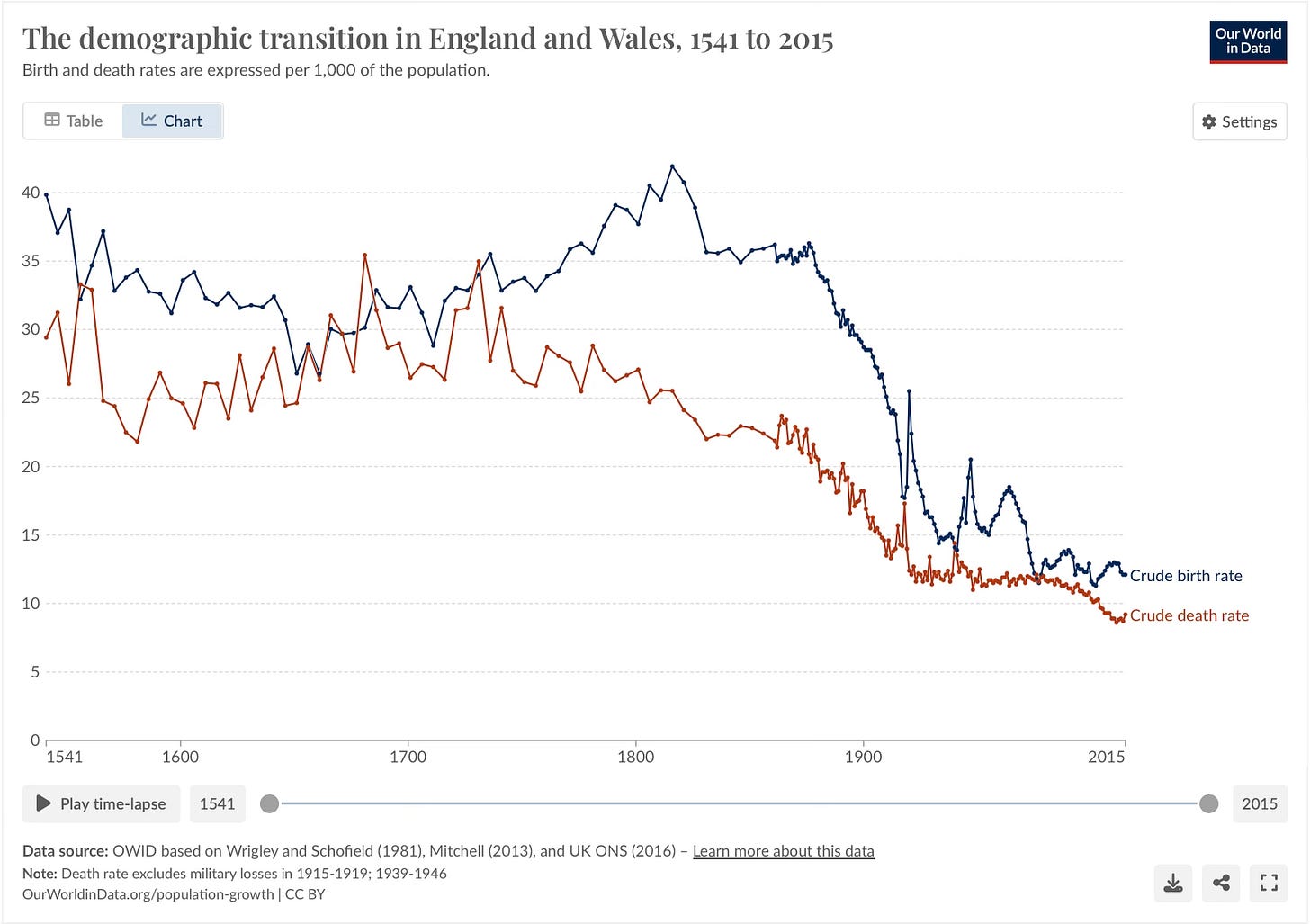
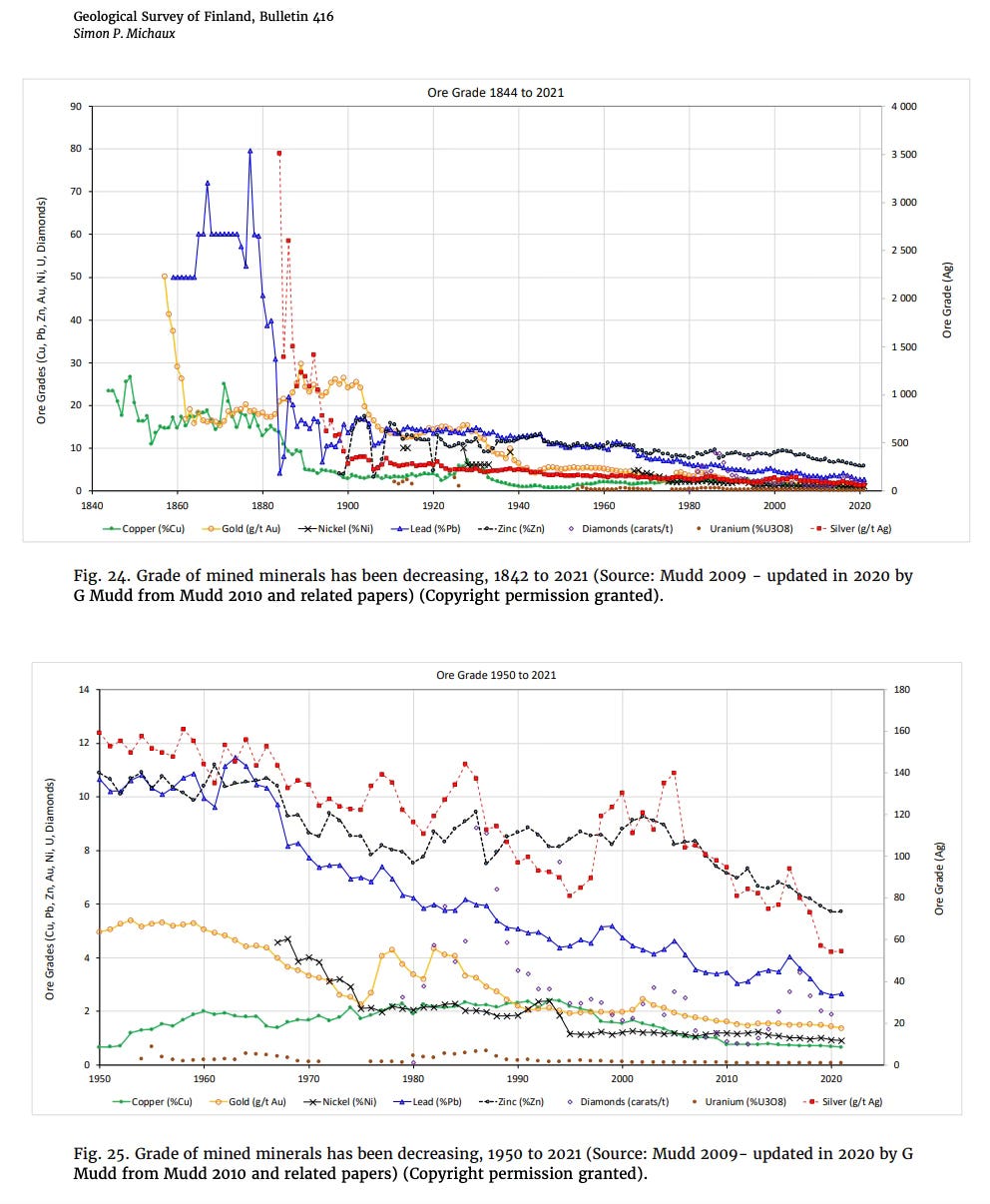



Nice post by Ahnaf about the hard neo-Malthusian limits that humanity is rapidly barreling toward. Humanity is simply too large and consuming rapidly depleting energy sources that technological civilization requires to survive long-term. It is like an ant colony that stumbles across a giant pile of sugar; it consumes the sugar, has a massive population expansion while doing so, then experiences a mass die off once the sugar pile runs out. We simply can't help ourselves - we are a locust-like species and the temptation of easy living for 100-200 years was too great. However, I would like to see Ahnaf address the possibility of SpaceX (which I'm a big fan of) using rapid reusable rockets to bring resources from around the solar system for future consumption. How would that adjust his prognosis and equations, if at all?
Excellent article. The author clearly has read the book "The Ecotechnic Future" which I reviewed a few months ago. An excellent work that I would recommend to any one contemplating a post-Faustian civilization in a less-apocalyptic light. There are a few statements I would like to add to the work done by @ahnafibnqais on both sides.
https://alwaysthehorizon.substack.com/p/book-review-an-ecotechnic-future?r=43z8s4
1] There is the option for a space-faring nation to rise at the expense of all other nations. Effectively in a global economy of de-growth or simply in a zero-sum state. One nation can absorb the resources of foreigners and promote a growth economy even as the rest of the world quickly decays. The United States is positioned to do this through an Imperial age. What will be an speedy apocalyptic decline among foreign nations might be an era of stellar adventure for the US... for a while. The military expense will grow over time just as any other form of Return On Energy Investment ROEI.
2] In the above scenario, foreign cities would become mines for critical and rare metals. Foreign individuals becoming employed scavenging the metals from their own cities. This will probably become an international grey market.
3] A large power-house with surplus atomic energy may develop a chemical method of cracking CO2 and converting it back into hydrocarbons. (We know this is possible biologically, we just need a way to industrialize it and there hasn't been any money in this type of research yet). What you then have is the ability to remain on a petroleum economy, but with artificially produced petroleum. This would be tricky to accomplish, but allows one to side-step the enormous energy expenditure of transitioning to an electric economy. You use the electricity to make more petrol.
4] The global economy is geared to infinite-growth. As growth slows, stagnates, and then eventually retreats, the global economy is going to collapse at some point. A major transition in international finance will be needed to maintain global economic systems in a stagnant economy. That capricious restructuring alone might be enough to send human civilization over the edge. I hope not, but there's really no way to plan for the type of fundamental re-alignment of financial incentives that'll be coming. Most of our elites right now seem more interested in kicking the can down the road through inflation and public spending to simulate economic growth. I discussed this problem in my Limits to Growth analysis and my review of Breaking Together.
https://alwaysthehorizon.substack.com/p/analysisreview-the-limits-to-growth?r=43z8s4
https://alwaysthehorizon.substack.com/p/book-review-breaking-together?r=43z8s4
5] Price-speculation will create artificial bottlenecks. People will utilize the above problem of economic restructuring to make massive profits through global economic asset speculation. We'll see monstrous asset bubbles (like the one that's growing right now in winter 2024). The asset bubbles will be caused by price speculators anticipating shortages or gluts of product. The speculators will make a huge amount of money while effectively impoverishing every one else across numerous international markets.
6] The innovations of the modern sciences have slowed dramatically. I'm working on an article right now highlighting this problem. Bullshit research is occurring as a byproduct of bullshit public spending (as highlighted in paragraph 4). Academia has become highly feminized and a lot of good researchers are driven out due to the school-room cultural dramas. The result is that a large amount of research is "safe" research that's iterative rather than innovative. The cultural shifts have compounded on resource shortages to prevent us from innovating our way out of this problem. It's going to be a major issue that no one is really talking about outside of academia. The replication crisis demonstrates that a significant percentage (around 50 to 90) either use false data or publish bad results.
7] The modern bureaucratic state is unable to cope with the coming challenges. Bureaucrats enforce policy, they don't come up with new ideas or ways to build better systems. Think of a bureaucracy like a computer where legislation goes in one end and blind rule-enforcement comes out the other. The bureaucracy can't adjust quickly to necessary critical changes. An excellent example is that all vehicles in the US require a catalytic converter for production and sale. If suddenly platinum become unavailable, then catalytic converters can't be produced... if that happens then there will be no new vehicle for sale in the United States until an alternative source for a cat-converter can be found. The same goes for backup cameras, inertial detectors, all types of requirements. Enforcement of policy by the local bureaucracy can effectively nullify entire industries of there's a shortage of some hyper-specific part(s) or materials.
I'm going to restack your article also. Some of these edits benefit the 'we can make it' side of the argument, but most do not. We'll see over the next century.